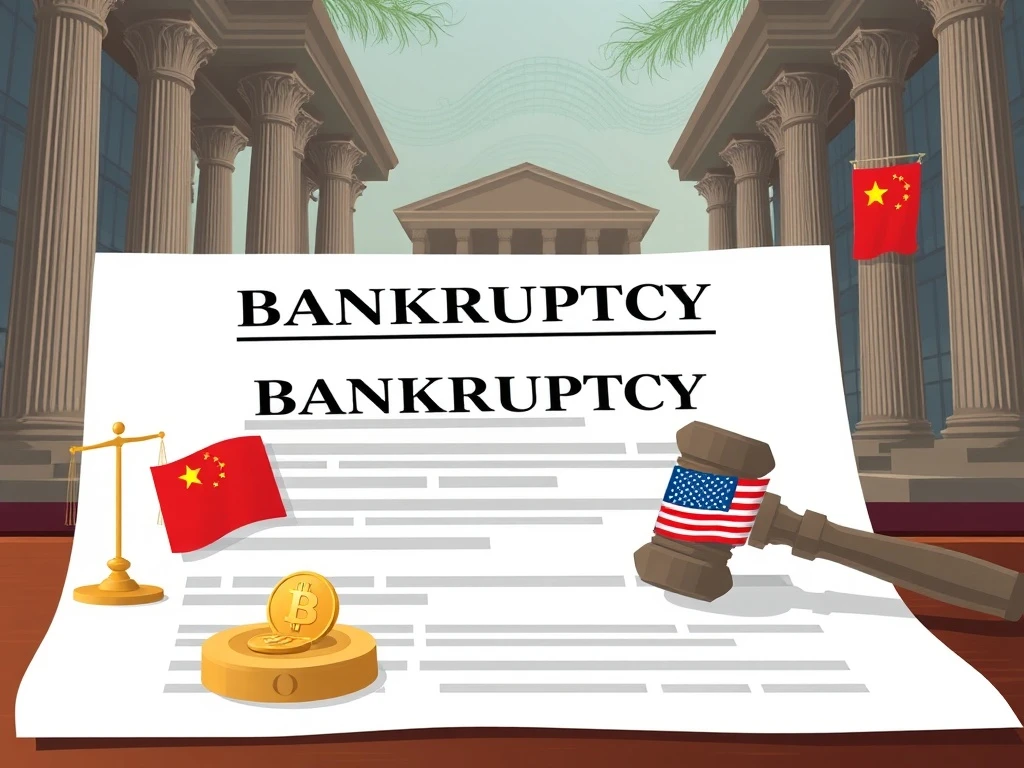FTX Payouts: Chinese Creditors Challenge Controversial Halt Motion

The complex saga surrounding the FTX bankruptcy continues to unfold, with a new development adding another layer of challenge to the repayment process. A Chinese creditor has officially filed an objection to a motion proposed by the FTX estate, which seeks to pause FTX payouts to residents in specific countries deemed to have restrictive crypto regulations.
Why Are Chinese Creditors Objecting to the Payout Halt?
The objection was filed by Weiwei Ji, who, despite residing in Singapore, is classified as a Chinese creditor due to holding a Chinese passport. Ji’s filing represents not just their own claim but also a growing group of over 300 Chinese creditors, collectively holding significant claims against FTX.
Their primary arguments against the motion to halt FTX payouts are clear and direct:
- FTX settlements are designated in US dollars, a standard and widely accepted legal method of repayment.
- They argue that cryptocurrency distributions are permissible in China, where digital assets are recognized as personal property.
Ji emphasized the personal impact of the motion, stating, “My family holds four KYC-verified accounts with aggregate claims exceeding $15 million USD… We have fully complied with every procedural requirement under the Plan. The proposed motion now jeopardizes our right to distribution in an arbitrary and inequitable manner.”
Understanding the FTX Estate‘s Motion on Crypto Regulations
The FTX estate filed its motion on July 2 with the US Bankruptcy Court in Delaware. The rationale behind pausing FTX payouts in certain regions is rooted in concerns about potential legal risks.
The estate stated that making distributions into jurisdictions with specific legal restrictions on cryptocurrency transactions could lead to:
- Fines and penalties for the estate.
- Personal liability, including potential criminal penalties or imprisonment, for directors and officers involved in the recovery process.
The motion identified 49 countries where crypto regulations are either unclear or restrictive, potentially creating complex cross-border legal complications for the FTX estate during the FTX bankruptcy resolution.
Which Countries Are Affected by the Proposed Payout Halt?
Approximately 5% of the total value of allowed claims belongs to residents within these potentially restricted jurisdictions. The list includes a diverse range of countries, highlighting the global reach of the FTX bankruptcy.
In addition to China, the motion lists countries such as:
- Russia
- Egypt
- Afghanistan
- Tunisia
- Zimbabwe
- Ukraine
- Moldova
The FTX estate used Moldova as a specific example in its filing, noting that engaging in activities related to virtual assets there can be a criminal offense, even if auxiliary to a main activity.
What’s Next for FTX Payouts Amidst This Challenge?
This objection from Chinese creditors adds a significant hurdle to the FTX payouts process. While the FTX estate began initial repayments to convenience class members in February 2024 (based on November 2022 asset values, a point of contention for some), the motion concerning restricted countries and the subsequent objection introduce uncertainty for a substantial group of creditors.
The court will now need to consider the arguments presented by both the FTX estate and the objecting Chinese creditors before making a decision on the motion. The outcome will have a direct impact on when and how creditors in these 49 countries receive their distributions from the FTX bankruptcy proceedings.
Summary
The ongoing FTX bankruptcy case has faced a new challenge as a group of Chinese creditors formally objected to the FTX estate‘s motion to pause FTX payouts in countries with restrictive crypto regulations. The creditors argue that their claims should be processed as settlements are in USD and digital assets are legal property in China. The FTX estate‘s motion cites legal risks in 49 countries, including China, potentially affecting 5% of total claims. The court’s decision on this objection will be crucial for determining the timeline and method of repayment for a significant portion of FTX’s creditors worldwide.









